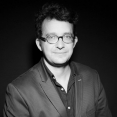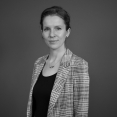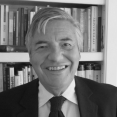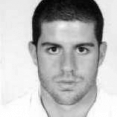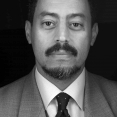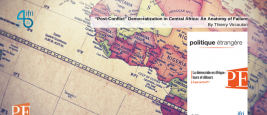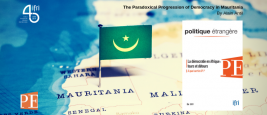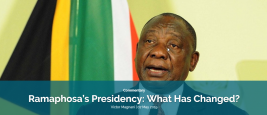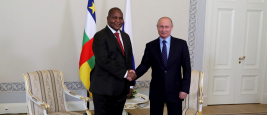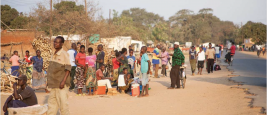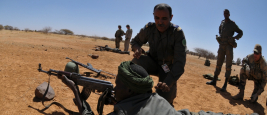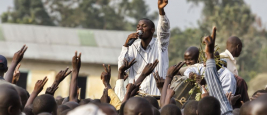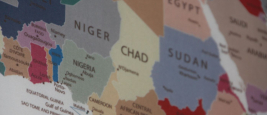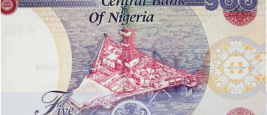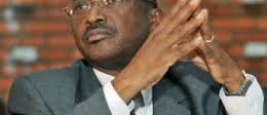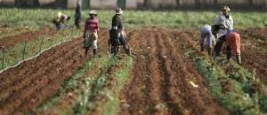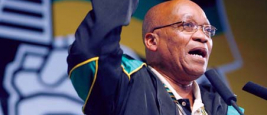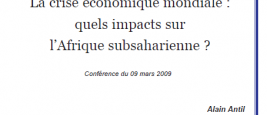To create a political shift that draws a line under conflict once and for all, it is not always enough to draft a democratic constitution and call elections.

Sub-Saharan Africa
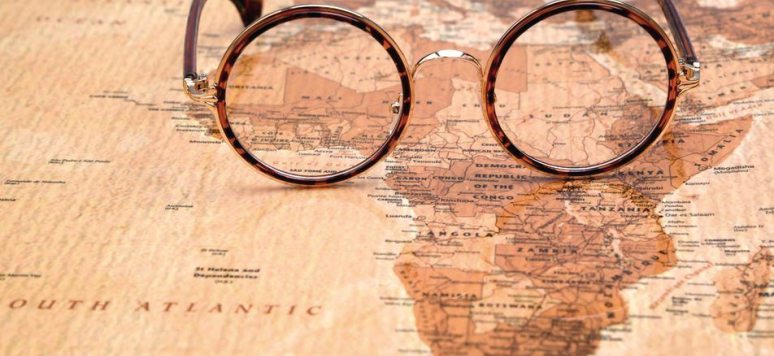
Founded in 2007, the Sub-Saharan Africa Center of the French Institute of International Relations - Ifri works to address the cross-disciplinary issues that the African continent is facing. The Center achieves its mission through quality analyses available in various formats.
Aimed at renewing interpretative frameworks and nurturing public debate, the Center’s expertise offers helpful tools for policy-makers in Africa. The Center also provides analyses for some key actors in Africa such as the French Ministry of the Armed Forces (Ministère des Armées), the French Ministry of Europe and Foreign Affairs (Ministère de l'Europe et des Affaires étrangères), International Crisis Group, the OECD or the World Bank.
Launched in 2008, l’Afrique en questions covers topics of broad and current interest. In addition, the Policy Papers and Reports published by the Center provide more comprehensive analyses. These publications are combined with public events where politicians, academics, companies and civil society can promote dialogue about Africa and share analytical tools.
Afrique Décryptages, the Sub-Saharan Africa Center’s blog, provides information regarding the Center's activities, publication announcements, conference reports, and links to the Center's research fellows’ public appearances. Afrique Décryptages also works as a forum where the research fellows share their opinions about topical issues and stimulate debates and discussions.
Research Fellow, Director of Ifri's Sub-Saharan Africa Center
...Research Fellow, Coordinator of the Governing the Urban Transition in Africa research program, Ifri's Sub-Saharan Africa Center
...Associate Research Fellow, Sub-Saharan Africa Center / Center for Energy and Climate
...Associate Research Fellow, Sub-Saharan Africa Center and Turkey/Middle East Program
...Associate Research Fellow, Sub-Saharan Africa Center
...Associate Research Fellow, Sub-Saharan Africa Center
...Associate Research Fellow, Coordinator of the Observatory of Central and Southern Africa, Sub-Saharan Africa Center
...Mauritania's political system displays certain democratic qualities that go some way to meeting international standards.
On the eve of the 25th anniversary of democracy in South Africa, the African National Congress (ANC) still holds power in a nearly hegemonic way. Nevertheless, the popularity of the party is decreasing while economic and social inequalities are deeply entrenched in the country.
Russia’s comeback to Africa has been widely discussed since 2017.
On May 21st 2019, Malawi will hold its tripartite elections, where voters will vote for the President, Members of Parliament and local Councillors. 2019 will also mark the 25 years of multiparty politics in Malawi since the one-party regime presided by Hastings Kamuzu Banda came to an end in...
Nowadays, numerous actors are involved in military cooperation programs aiming to strengthen African armed forces and build special partnerships.
Often described as an “ungoverned area”, the Niger-Libya border is nevertheless at the centre of major economic, political and security challenges. Both the Libyan authorities and the Nigerien state are struggling to establish tight control over this particularly isolated area.
This study analyses the various mechanisms that explain the leakage of the main source wealth in Nigeria at all levels of the production and commercialization of oil and gas, from the wellheads, with the bunkering of pipelines, up to the export of crude oil and the import of refined products,...
On June 5th 2017, Saudi Arabia, the United Arab Emirates, Egypt and Bahrain broke off diplomatic relations with Qatar and agreed to isolate the Emirate via an air and land blockade.
What Future for the Gabonese System?
Seminar around Guy Rossatanga-Rignault, professor, University of Libreville, Roland Pourtier, professor, University Paris 1 Panthéon-Sorbonne, Douglas Yates, professor, American University of Paris.
Perspectives for a Democratic Governance in Guinea Conakry
Conference with Sidya Touré, Former-PM of Guinea, Head of Union des Forces Républicaines (UFR) of Guinea
...
Perspectives for a Democratic Governance in Guinea Conakry
Conference with Sidya Touré, Former-PM of Guinea, Head of Union des Forces Républicaines (UFR) of Guinea
Chairman : Alain Antil, Head of Ifri's Sub-saharan Africa program. Speeches and debate will be held in French.
Ivory Coast's Electoral Process
First seminar of the cycle "Ivory Coast", organized in partnership with Cogid (General Coordination of Ivorians from the Diaspora) with Christian Bouquet, Professor, University Michel de Montaigne (Bordeaux 3), Massaër Diallo, Head of Unit, Governance,...
Democratization, development and governance reforms in the Democratic Republic of Congo: the work of the international community seen from the grassroots
Ifri's Sub-Saharan Africa program organizes a seminar around : David Ambrosetti, Researcher, CNRS, Paris ; Alexis Bouvy, Technical/Analysis counsellor, Life & Peace Institute; Rory Keane, policy analyst, OCDE, International Network on...
Democratization, development and governance reforms in the Democratic Republic of Congo the work of the international community seen from the grassroots
Ifri's Sub-Saharan Africa program organizes a seminar around : David Ambrosetti, Researcher, CNRS, Paris ; Alexis Bouvy, Technical/Analysis counsellor, Life & Peace Institute; Rory Keane, policy analyst, OCDE, International Network on...
2009 South Africa Elections: a new country, a new ANC or a new opposition?
Conference around Thierry Vircoulon, Associate Fellow,
Chairman : Alain Antil, Head of Ifri's Sub-Saharan Africa Program.
2009 South Africa Elections: a new country, a new ANC or a new opposition?
Conference around Thierry Vircoulon, Associate Fellow,
Chairman : Alain Antil, Head of Ifri's Sub-Saharan Africa Program.
World Economic Crisis: The impacts on Sub-saharan Africa?
Conference with Shanta Devarajan, The World Bank's Chief Economist on Africa; Jacques Mistral, Head of Ifri's Economics Studies Department; Alain Antil, Head of Ifri's Sub-saharan Africa program. Speeches and debate will be held in French.
...The Sub-Saharan Africa program and its Associate Fellows are accustomed to sharing their expertise with the media. Our experts mainly speak French, but they can also intervene in English. Consult our researchers’ geographic and thematic specialties on their profile.



